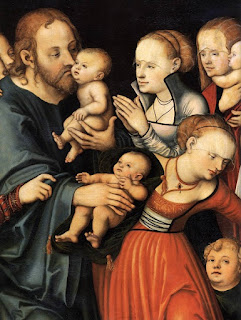19th Sunday in Ordinary Time: August 13, 2023
Readings: 1 Kings 19:9, 11–13; Psalm 85:9–14; Romans 9:1–5; Matthew 14:22–33
To listen to my audio-video reflections via YouTube, please click here:https://youtu.be/1GFlt_UFETE
In our ordinary everyday lives often life becomes monotonous. As a result, we lose interest in a number of things that we usually do either in the workplace or in our private lives. As a result, it affects terribly in our relationships. Often this sort of lethargy sets into our lives very deeply causing a lot of anguish and fear, a sense of loss and disinterestedness. If one does not pay attention to such symptoms, this would lead to disastrous consequences including loss of health or life itself. The Economic Times newspaper (Aug 11, 2023) carries a short news report saying that 50 years ago the word "burnout" entered the corporate lexicon when Herbert Freudenbeger, a New York psychologist, first identified it. The newspaper report says that burnout is back with a vengeance today. The recent data from Deloitte and the research firm Workplace Intelligence cites half of the workers in the US saying they are either exhausted or stressed and 60 percent of employees say they would consider changing jobs to find better well-being provisions. This situation is no better in India either. Burnout phenomenon can set even in the practice of our faith, family, monastic, religious, priest or in a couple's life as well. The liturgical readings on this 19th Sunday in Ordinary time speak in similar lines, especially in the person of the prophet Elijah suffering a sense of loss of purpose in life.
1. Divine interventions are unique and special
In our first reading 1 Kings 19:9, 11–13 we see Prophet Elijah taking shelter on the Mountain of God, Horeb or better-known Mount Sinai. He is running away from the murderer King Ahab and his wicked wife Jezebel. Because these two murdered all the prophets by the sword and now looking for the prophet Elijah to be killed. So Elijah is running for cover. He is tired of doing God's work and finds no meaning as his very life is threatened. Now he is not only disgusted with what is happening around him moreover, prays for death “Enough, LORD! Take my life, for I am no better than my ancestors” (1 Kings 19:4). Elijah had walked for forty days and forty nights to escape from the jaws of death, but now tired and burnt out. At this point at Mount Horeb, Elijah experiences God so closely and intensely in the form of a "tiny whispering sound."









